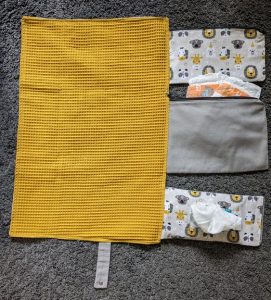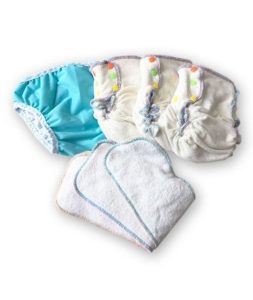How to get a toddler out of diapers? Potty training is a big milestone for both toddlers and parents. It can feel overwhelming, but with patience, consistency, and the right approach, you can guide your child through this transition smoothly. This article explores potty training tips, signs your child might be ready, and how to make the process positive and successful.
Signs of Readiness
Every child develops at their own pace. There’s no magic age to start potty training. However, some signs indicate your toddler might be ready to ditch the diapers:
- Shows interest in the toilet: Curiosity about the toilet or using grown-up potty words can be a sign.
- Stays dry for longer stretches: This shows increased bladder control.
- Dislikes feeling wet or dirty: Toddlers who communicate discomfort in wet diapers might be ready to try the potty.
- Can pull down and pull up pants: This helps with independence during potty time.
If your toddler isn’t showing these signs, don’t pressure them. Trying to potty train before they’re ready can lead to frustration for both of you. Wait for their natural development to take its course.
Setting the Stage for Success
Once you see signs of readiness, you can start creating a potty-training-friendly environment:
Get a potty chair:
Choose a small, colorful potty sized for your toddler. Let them pick it out if possible to increase their excitement.
Stock up on training pants:
These are absorbent underwear that offer more leak protection than regular underwear but feel less like reusable diapers.
Gather potty training books:
Look for books with simple illustrations and stories about using the potty. Read them together to introduce the concept in a fun way.

Making Potty Time Positive
- Use positive reinforcement: Praise your child for their potty-training efforts, even if it’s just sitting on the potty.
- Avoid punishment or getting angry: Accidents happen. Stay calm and focus on the positive steps your child is taking.
- Make it a routine: Schedule regular potty breaks throughout the day, even if your child doesn’t go right away. Consistency is key.
The Potty Training Journey
Potty training is a process, not a one-time event. Here’s a general roadmap to guide you:
- Start with letting your child see you using the potty. Talk about what you’re doing in simple terms.
- Let your child practice sitting on the potty with clothes on. This gets them comfortable with the idea.
- Move on to trying without diapers for short periods. Use training pants for accidents.
- Offer potty breaks frequently, especially after waking up, drinking fluids, and before bedtime.

Regression is normal during potty training. If your child has accidents, don’t get discouraged. Just go back a step in the process and focus on positive reinforcement again.
Nighttime Potty Training
Nighttime dryness can take longer than daytime control. Here are some tips:
- Limit fluids before bedtime.
- Wake your child to use the potty once during the night, if needed.
- Use nighttime diapers for now and revisit nighttime training later.
Potty training is a big accomplishment for your child. Celebrate every milestone, big or small. This positive reinforcement helps keep your child motivated.
When to Seek Help
Most toddlers are potty trained between 18 months and 3 years old. If your child is older than 3 and still struggling, talk to your pediatrician. They can offer additional guidance or rule out any underlying medical conditions.
There’s no one-size-fits-all approach to potty training. Trust your instincts and what feels right for your child. With patience, consistency, and a positive attitude, you can guide your toddler through this important step towards independence.

Building Communication and Teamwork
Potty training is a journey you take with your toddler. Here are some ways to build communication and teamwork throughout the process:
- Use simple and clear language: Explain things in terms your toddler can understand.
- Let your child take the lead: Follow their cues and avoid forcing them to sit on the potty for extended periods.
- Offer choices: Give your child a sense of control by offering choices like picking out potty training underwear or a potty time book.
- Celebrate together: Make a big deal out of successes, no matter how small. This positive reinforcement keeps your child motivated.
There are many potty training apps and games available. These can be a fun way to supplement your potty training efforts. However, screen time should be limited for toddlers.
Patience and Consistency are Key
Potty training can be messy and require a lot of patience. Here are some reminders to keep in mind:
- Accidents happen: Stay calm, clean up any messes, and move on.
- Every child develops at their own pace: Don’t compare your child to others.
- Consistency is key: Stick to a routine and praise your child’s efforts.
- Make it a positive experience: Keep things fun and lighthearted.

Taking Care of Yourself
Potty training can be stressful for parents too! Here are some tips for taking care of yourself:
- Set realistic expectations: It takes time.
- Talk to other parents: Share experiences and get support from others who have been through it.
- Take breaks when you need them: It’s okay to ask for help from a partner, family member, or friend.
Potty training is a big milestone for toddlers. By following these tips, creating a positive and supportive environment, and celebrating your child’s progress, you can guide them through this transition successfully. Remember, patience, communication, and teamwork are key!

Potty Training Resources
Potty training can be an adventure! Here are some resources to help you along the way:
- Books: Look for children’s books with positive and relatable potty training stories.
- Websites: Many websites offer potty training advice and tips.
- Pediatrician: Your pediatrician can be a valuable resource for guidance and addressing any concerns.
- Sing songs: Make up silly songs about using the potty.
- Sticker charts: Reward progress with stickers on a chart.
- Bath time books: Waterproof books can make bath time a fun place to introduce potty concepts.
The Importance of Positive Reinforcement
Positive reinforcement is key to successful potty training. Here are some ways to praise your child:
- Verbal praise: Tell your child you’re proud of them for trying or using the potty.
- High fives and hugs: Physical affection shows your child they’re doing well.
- Small rewards: Stickers, a special book to read after using the potty, or a short playtime activity can be motivating.





